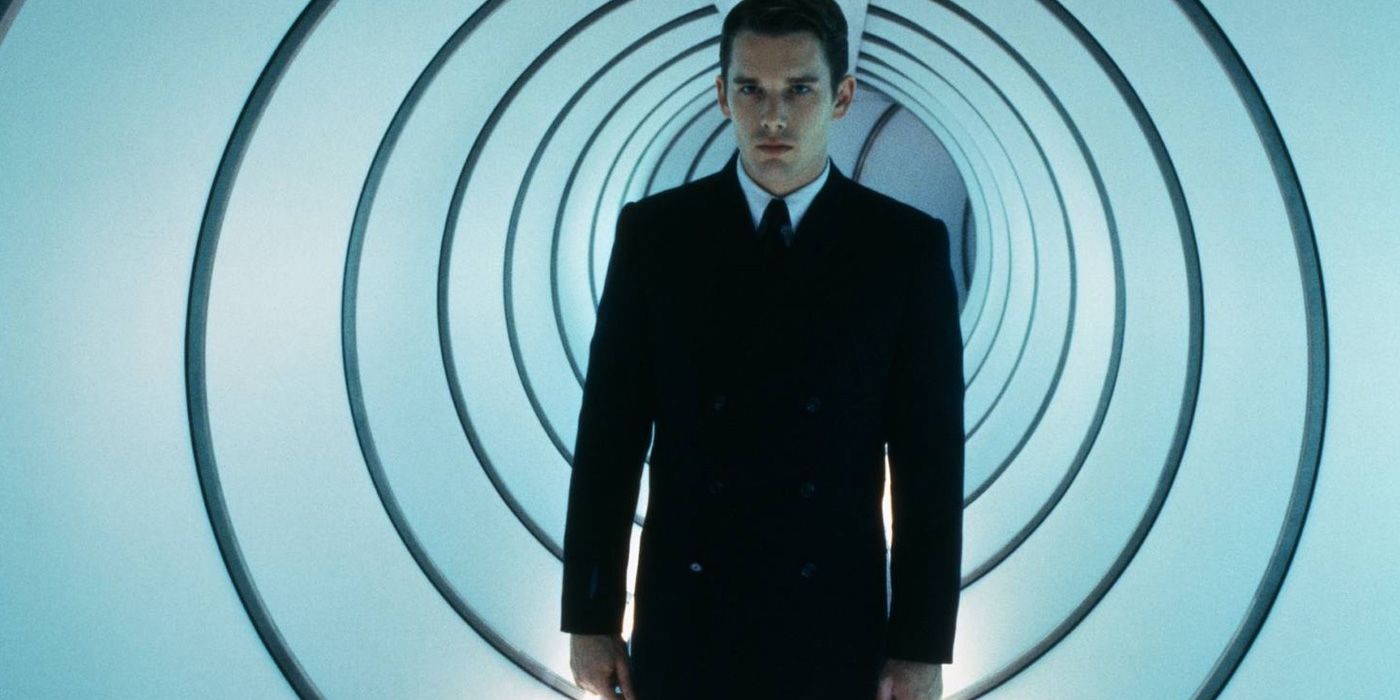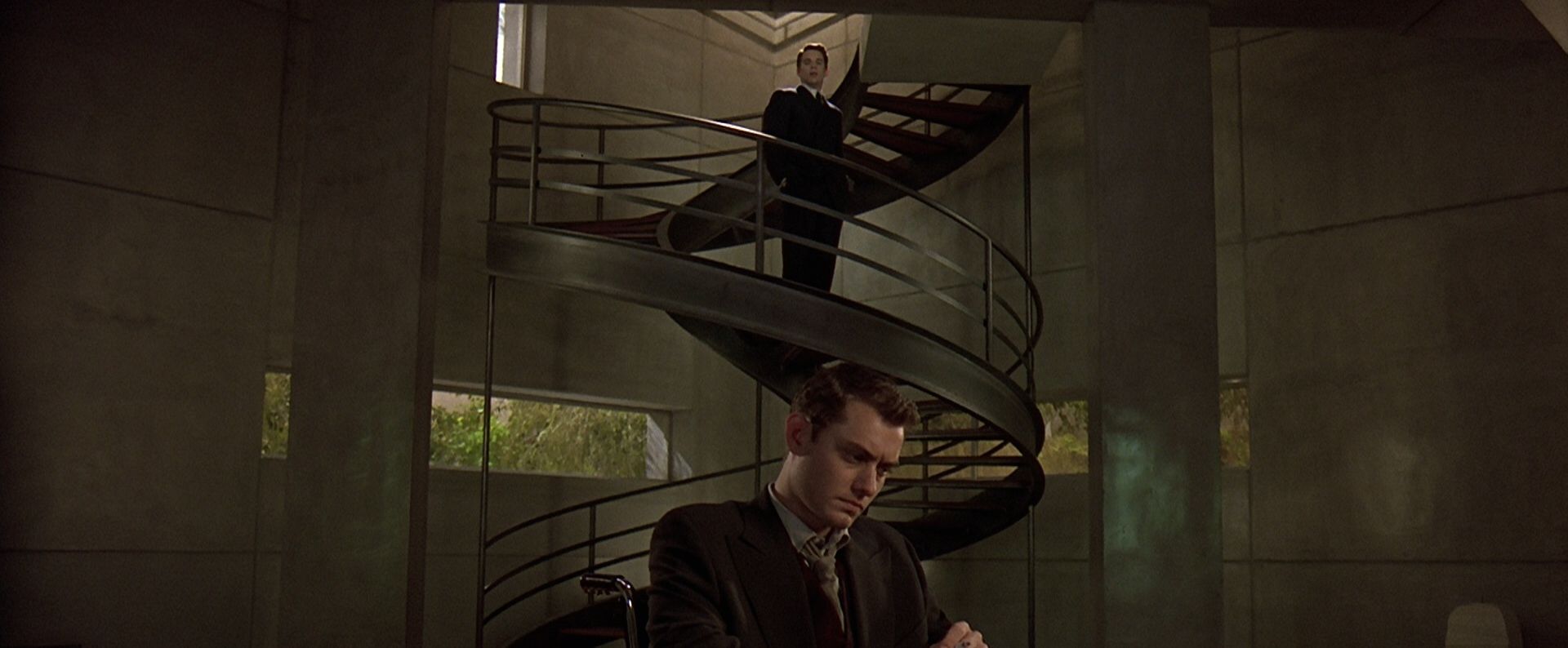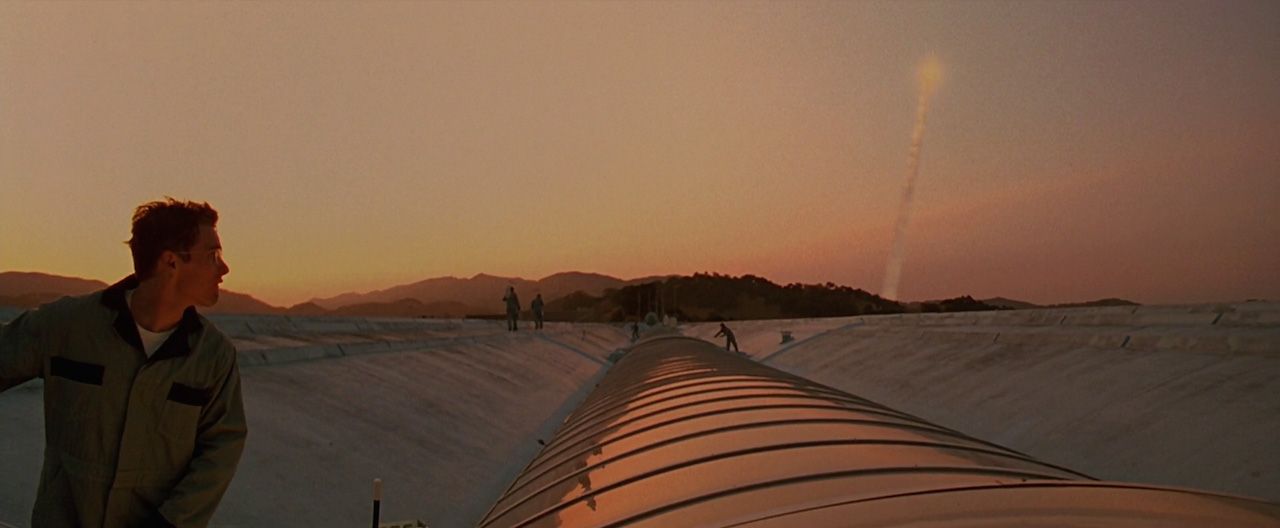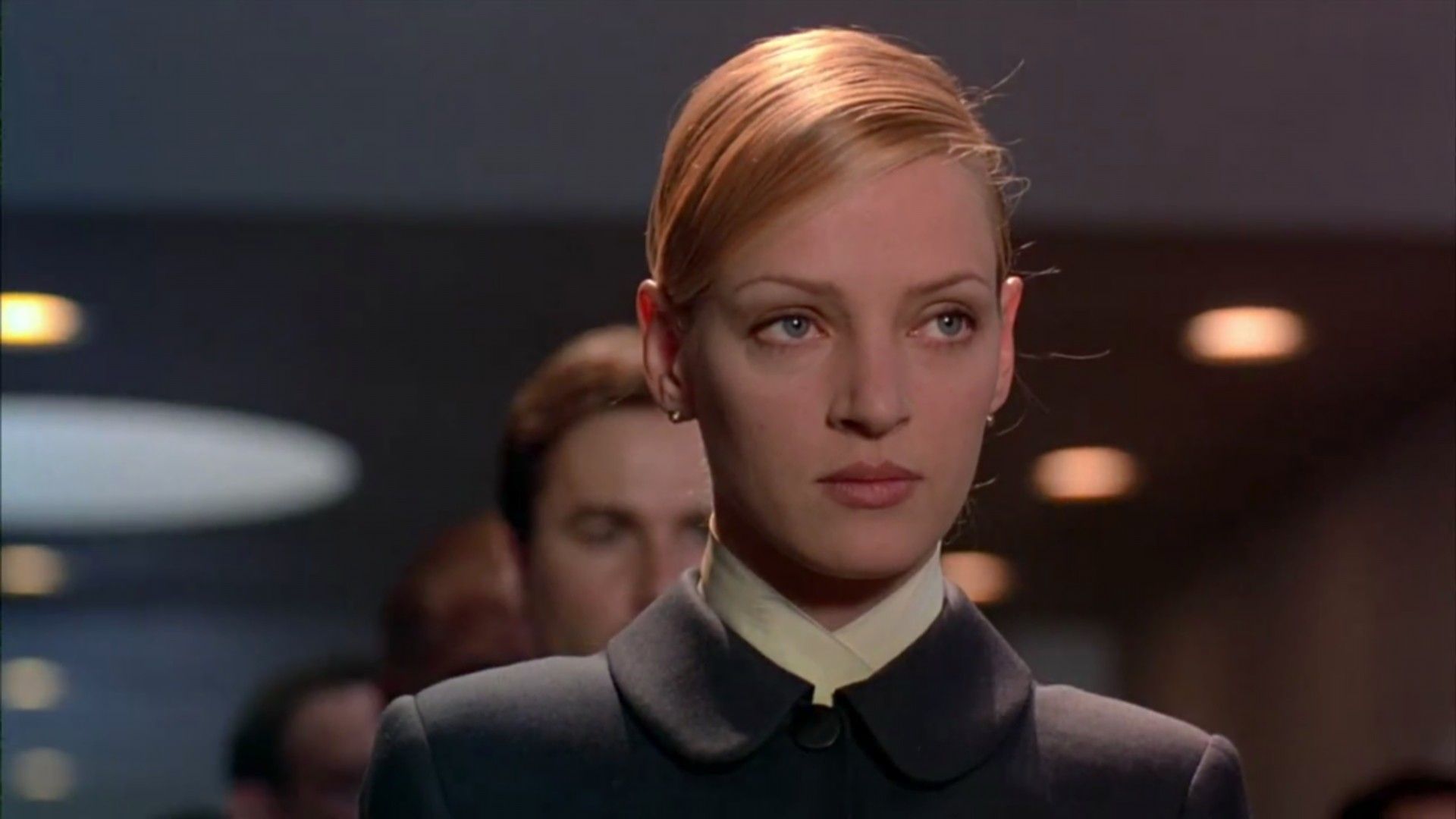With Andrew Niccol’s beloved 1997 sci-fi film Gattaca arriving on 4K this week, I had a chance to revisit the film, and what struck me on this latest viewing (aside from the gorgeous visuals, which I’ll get to in a bit) is how it’s firmly in the mold of Aldous Huxley’s Brave New World. They’re both stories about how genetic engineering will create new social classes, and yet, like any good sci-fi story, they’re not so much about the future as they are about the present and how people are relegated to specific roles based on factors that are well beyond their control. Where Gattacaseeks to address these factors is in trying to uphold the triumph of the human spirit, something that can’t be measured by genetics or science.
For those who need a brief refresher on the movie, it takes place in the “not-too-distant future” where genetic engineering of children has led to a new genetic caste system. At the bottom of this caste is Vincent (Ethan Hawke), a man of natural birth (as opposed to genetically engineered in-vitro fertilization) with myopia, a 99% chance of a fatal heart defect, and dreams of becoming an astronaut. However, this world would never take the risk on someone with his genetic makeup, so he goes into the black market to work a scheme with Jerome (Jude Law), a perfectly engineered man whose dreams of glory were lost when he was in a car accident that left him in a wheelchair. Through a series of demanding procedures and routines, Vincent is able to pass as Jerome, but a murder investigation at Vincent’s company, Gattaca, puts the authorities on high alert and endangers Vincent’s dream of going to the stars.
Gattaca is a story about passing but done in such a way as to build around the white characters who largely populate the film. Vincent sees an entire system constructed against him, and although he notes that it’s technically against the law to discriminate, those laws don’t really matter. That’s a fairly accurate representation of our country where all kinds of discriminations are built in whether it’s along the lines of race, class, ethnicity, religion, gender, and so on. Gattaca is simply able to crystalize all of these by building solely around the concept of genetics rather than taking into consideration the intersections of these other socioeconomic circumstances. By being a story about a single, fictional type of discrimination that’s fictional, it’s able to be a story about all discrimination.
Where Gattaca shows the constraints of American individualism is in the late-90s’ ethos when it was produced by showing that the solution to Vincent’s dilemma is simply to work harder. While in the 2010s and 2020s we’re starting to address how systemic issues create individual barriers, in the 1990s, we still swallowed the “personal responsibility” bromide unquestioningly (and to be fair, we’re still swallowing it a fair bit today). However, a movie where Vincent becomes an activist to protest systemic genetic discrimination doesn’t make for the riveting individual stories we tend to expect from movies since it’s harder to capture the triumphs of groups and protest rather than the actions of the individual.
In this way, Gattaca slightly and unintentionally reinforces the discrimination it seeks to combat. Vincent isn’t attempting to bring down the system, and near the end of the film, he discovers that Jerome has left him enough blood and urine to “last two lifetimes,” indicating that when Vincent returns from his journey to space he will continue to pass for Jerome until the end of his life. There’s never any talk of ending this system, but rather that it’s contingent on the individual to work within its confines and game it to the best of their personal willpower.
But to Niccol’s credit, he doesn’t hold up the world of Gattaca as anything worth embracing. What the new 4K transfer illustrates is the brilliant design choice of using a mid-century modern aesthetic. Niccol consciously chooses a design of futurism past to show how that futurism consistently fails and only seeks to uphold a ruling order devoid of diversity, and ultimately, life itself. With the new 4K, you can really sink into how stylish yet cold the confines of Vincent’s world are, and where the only moments of color and warmth come from the love story between Vincent and Irene (Uma Thurman). For Gattaca, a world ordered on control and discrimination may run seamlessly, but it’s also devoid of humanity.
The film’s cleverness remains in how discrimination never remains overt. There’s no roaming band of bigots out to ruin the lives of natural-birth citizens. Gattaca emphasizes that systemic discrimination is more efficient, subtle, and all-encompassing than the actions of any individual because ultimately your life is strongly impacted not by strangers you meet but the society you inhabit. That’s not to diminish the role of hate groups or bigots, but rather that Gattacashows how a society absorbs and disseminates its own prejudices without the intent of any single individual or group. That element of the story’s subtext remains just as potent today.
And to be fair, I can kind of hang with its “transcendence rests on the power of the human spirit, not societal change” angle because ultimately it needs to fit into traditional narrative to better make its larger points. I may not agree in my day-to-day life, but as a piece of storytelling, Gattaca is potent because, as Huxley knew in the 1930s, a world where our choices are made for us before we’ve had any say is nightmarish. We want to believe we’re captains of our own fate, and discrimination always chips away at those choices.




